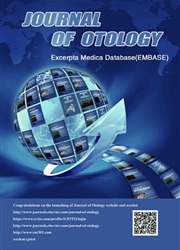

 中文摘要:
中文摘要:
遗传因素是重度及极重度耳聋的主要病因之一,与人工耳蜗植入后听力言语康复效果密切相关。多种致聋基因常见致聋基因型成功克隆后,致聋基因的致病机理以及其与耳蜗植入效果间的相关性已成为研究热点。目前研究认为耳聋表型可能与致聋病因,螺旋神经节细胞残留数量等有关。通过对耳蜗植入患者的致聋基因突变位点和基因突变方式可阐明影响耳蜗植入效果的相关因素。本文探讨各类遗传性耳聋耳蜗植入效果的当前进展,并着重于耳聋临床表型-基因型的相关性。
 英文摘要:
英文摘要:
Genetic factor is one of the most important etiologies in severe to profound sensorineural hearing loss and plays an important role in cochlear implantation outcomes. As pathogenic mutation types of deafness genes have been cloned, the pathogenesis and the relationship between it and the outcomes of cochlear implantation have become a hot research area. The auditory performance is considered to be effected by the number of etiologies of hearing loss, surviving spiral ganglion cells and others. The current research development of cochlear implantation for hereditary deafness, especially regarding the relationship among clinical types, genotypes and outcomes of cochlear implantation, will be discussed in this review article.
 同期刊论文项目
同期刊论文项目
 同项目期刊论文
同项目期刊论文
 期刊信息
期刊信息
